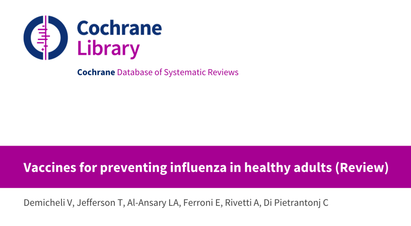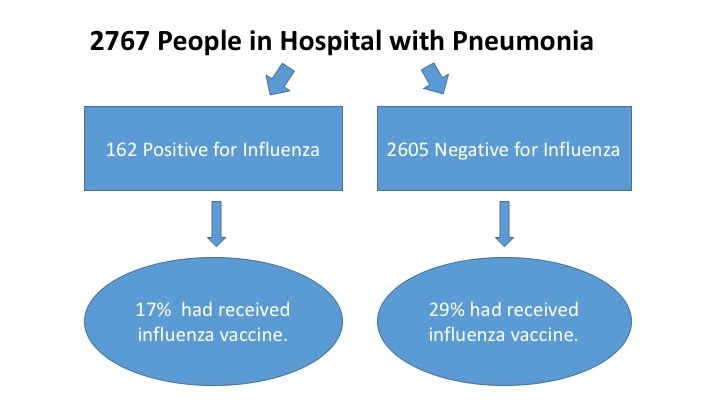
Also at that time, the vaccine schedule was not as extensive and did not include the chickenpox, or HPV vaccines -- both of which may actually have negative public health outcomes as a growing body of evidence suggests. For example while we've seen a decrease in Chickenpox cases since the introduction of the chickenpox vaccine, shingles has increased significantly -- which is concerning because it's a more dangerous and more expensive disease to treat. This is consistent with mathematical modeling done around the time of licensure that predicted increases in shingles might result from use of the chickenpox vaccine. Meanwhile the HPV vaccine has misled young women into thinking that they no longer need to get PAP smears, which when used regularly, have been shown to be nearly 100% effective in preventing cervical cancer, while the Gardasil vaccine is only about 40% effective at this, and there is no data showing that protection lasts even 15 years -- long enough to protect the pre-pubescent girls it is being given to at the time they really need it. Newer studies now suggest that the introduction and marketing of Gardasil, will result in increases in cervical cancer in industrialized nations as compared to what we had prior to use of this vaccine. However, due to the intensely charged rhetoric, and the advertising purchasing power of pharma which influences the types of stories the media covers, few people know that these two vaccines actually have no science to support their public health benefit. However, a law passed in 1986 gave vaccine manufactures and doctors immunity from liability should anyone be harmed by any of the vaccines on the federal pediatric vaccine schedule and that has drastically impacted the economics around vaccinations -- and thus our public policy. (keep reading....continues after photo...)
Since it has been many years since I've been to Australia, I don't know what their attitude towards the flu vaccine is now, but in America, flu vaccines were and continue to be big business. The World Health Organization points out that vaccines are the fastest growing sector of the pharmaceutical industry, and they expect that next year in the U.S., sales of the influenza vaccine alone, will be nearly 4 billion dollars. No wonder we are inundated with advertising, and pressure from "community partners" to get our flu shot. Like the ubiquitous, milk mustache campaigns trying to persuade us that dairy will improve our health, many have no idea how much science contradicts both of these marketing ploys.
The Cochrane Collaboration is a global independent network of researchers free from commercial sponsorship. They conduct and publish meta studies to help inform health decisions and are widely viewed as one of the least biased, evidenced-based sources of medical information. In 2014 they did a review of influenza vaccines, (which I'd encourage you to actually read for yourself by clicking on that link) but here are a few things I screen shot from that document (below). In a nutshell, this meta study, found a very small benefit of flu shots overall. But since as Cochrane points out they were unable to assess the real impact of bias on this subject, it is possible that even the small benefit they found is over-optimistic (keep in mind too that most published studies are designed and funded by those who stand to profit from sales of flu vaccines. For a long time, we've had plenty of evidence that when studies don't turn out in ways that supports pharma's sales -- that data never gets published -- it just disappears -- since those funding it often have researchers sign contracts to not publish any results without permission from the pharmaceutical company.) It is also important to note that Cochrane said, "The Harms evidence base was limited." meaning that they were unable to accurately assess the risk-benefit of flu vaccines. Below are screen shots from Cochrane's study....(keep scrolling down though I have even more to share!)
Then in 2015, The New England Journal of Medicine published a flu study that is featured prominently on the CDC's site HERE which purports to show that influenza vaccination makes one less likely to be hospitalized for pneumonia, if they do come down with the flu. However, I interpreted their data quite differently. The study looked at 2767 people admitted to the hospital with Pneumonia and found that 162 of them had laboratory confirmed influenza, while 2605 did not. It is worth pointing out that what most people think of as, "The Flu" is actually a set of symptoms such as a respiratory tract infection along with fever and aches and pains. There are many other infections (including food-borne illness!) that can have these symptoms, and more often than not what most people call, "The Flu" is NOT influenza. I have never seen evidence, nor even a theoretical basis to suggest that the influenza vaccine might prevent any of these other, "flu-like illnesses".
Of the 2767 people who were hospitalized with pneumonia, 162 of them tested positive for influenza, leaving 2605 who were hospitalized for pneumonia that was not caused by influenza. The first thing I noticed when looking at this data was this: Influenza looks to be a rather minor contributor to hospitalizations for pneumonia (since only about 6% of those with pneumonia were positive for influenza.) That means most cases of Pneumonia severe enough to lead to hospitalization come from other causes -- including "Influenza-like viruses" that the vaccine would not be expected to offer any protection against.
Given that people undergoing chemotherapy are known to be more vulnerable to infectious disease -- because we understand that exposure to toxic substances can negatively impact the the ability of the immune system to respond optimally to infections, is it not possible that injecting toxins like aluminum, formaldehyde and foreign proteins and other common vaccine components into the bloodstream might likewise make one more vulnerable to certain infectious diseases too? This paper offers no evidence to support that my alternative interpretation is any less valid then the one that the authors of this study put forth.
Let me restate this another way: These data suggest that for most people influenza presents a very small risk that they will be hospitalized with pneumonia. They are much more likely to end up hospitalized with pneumonia from infections other then the influenza. If they have gotten a flu vaccine and then get sick with something besides influenza, this study suggests that they will have an increased risk of being hospitalized with pneumonia.
Add to all this, evidence that US Flu Death Figures May be More PR than Science. Barbara Loe Fisher has a nice article HERE explaining all of this too, with a lot more references to the peer-reviewed literature. Even the CDC's own surveillance data shows that usually about 80-90% of what most people seek medical care for as, "The Flu" turns out, after laboratory testing to not be caused by the influenza virus. You can read CDC's figures HERE.
I believe that each vaccine needs to be looked at carefully to see exactly what science exists to support its public health benefits. Given that we have many examples of the pharmaceutical industry intentionally misleading the public regarding the safety or benefits of various prescription drugs (Vioxx being the first that comes to mind) Why should we expect these same players to suddenly be more ethical when it comes to vaccines, especially when they have extraordinary legal protections from liability should vaccines (unlike other pharmaceutical drugs) injure or kill anyone, and they have the US government mandating that many of us must purchase these products. The economic incentives to overstate the benefits, and minimize, or even hide the risks appear to be far greater for vaccines than any other pharmaceutical products. Given the fact that health care personnel are not trained to analyze health care policy, nor assess the risks and benefits of drugs, but instead to simply implement established guidelines, and the fact that drug manufacturers work extremely hard to influence both health care workers and policy makers, I encourage everyone to do their own research and critical thinking on this issue.
If you liked this, you might also enjoy my articles:
Why the Chickenpox Vaccine is Nuts!
Vaxxed -- Watch it and Make up Your Own Mind






